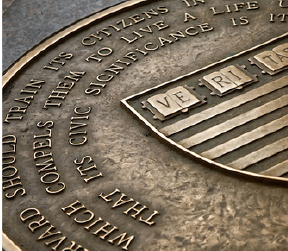 |
 |
 |
Founded in 1978, the Harvard Kennedy School Case Program is the world's largest producer and repository of case studies designed for teaching about how government works and how public policy is made. Our cases are written to facilitate discussion-based, interactive learning in our degree and Executive Education programs.
Our case development process begins with a learning goal that is generalizable beyond the case. Cases are framed to provide just enough information for students to get traction on a problem.
Our professional case writers rigorously check the accuracy of the cases, which draw on candid interviews with decision makers, as well as thorough document research. In that way, they represent a focused, detailed, and unrivaled body of information about the making of public policy and the administration of public and nonprofit institutions.
The collection houses cases, multimedia cases, and simulations. Most new cases come with detailed teaching plans that provide a road map for class discussion. Many cases in our collection are designed also to teach quantitative concepts or methods in Economics, Econometrics, Finance, International Trade, Statistics, etc. These cases introduce real policy dilemmas along with real data so students can learn how to apply the rigor of quantitative analysis in the real world.
All cases are classroom tested at Harvard prior to publication. We also feature guides on how to teach and learn by the case method in the Resources section of our site. Whether you're interested in public health or performance management, human rights, international trade, or energy and environment, these and dozens of other public sector-related topics are treated in a readable yet rigorous way by Kennedy School case studies.
We invite you to explore our collection.
